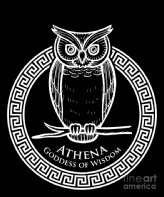



 NEXT
NEXT
 BACK
BACK
 Forum
Forum


Philosophical musings on Quanta & Qualia; Materialism & Spiritualism; Science & Religion; Pragmatism & Idealism, etc.





LOGOS
The Mystery of How We Make Sense of the World
Raymond Tallis
Physician & Philosopher
“The eternal mystery of the world is its comprehensibility”
___Albert Einstein
Post 99. September 16, 2019
LOGOS Makes Sense
Sense From Sensation
But, Science and Philosophy are committed to updating their paradigms from time to time. So, Tallis objects to outdated religious solutions to philosophical questions. He says, “God does not make the order of the universe and our capacity to grasp it any more probable.” That may be true of ancient god models, yet I’d be interested to know if he would agree that a more modern concept of G*D would explain the otherwise unforeseen emergence of Consciousness and Comprehension. In any case, he points the finger at innate human frailties to explain why we believe unbelievable things and are too often certain about uncertainties. “Indeed the intuition that our knowledge is bounded by ignorance . . . may be concealed from us.” So, those of us who have been burned by ignorance, innocent or willful, tend to be attuned to signs of mistaken knowledge and false facts. Fortunately, “we are creatures who cultivate doubt.” Unfortunately, some religions cultivate Faith, and warn about doubt directed toward their “revealed” truths. Which is why Philosophers and Scientists are typically skeptical of authoritative religious creeds.
Nevertheless, Tallis explains that, “the present volume is not an exercise in Cartesian ‘systematic doubt’ or in Cartesian certainty, but in surprise; in cultivated, organized, even systematic surprise.” That open-
So “sense” begins as physical sensations that are organized by the mind into relationship patterns that are relevant to our continuation as organisms. Sensory information is the raw material that must be baked into meaningful metaphysical ideas. We browse and shop for sensations that promise to “make sense”, first for surviving, and then for thriving. It’s the latter that is most surprising for Tallis. That we can convert short-
In the next chapter, Tallis turns his attention to the book’s title topic : Logos. “While the focus of this book will be secular, some of the most influential and profound responses to the mystery of intelligibility have involved a third party – God – mediating between mind and world . . .” Although the notion of a creative force of Reason in the cosmos, responsible for bringing order, form and meaning out of chaos was originally a secular philosophical concept, it later became associated with Christianity . . . . Post 99 continued . . . click Next
2. Quote by Julia Cameron
3. Logical structure :
The information structure of the natural world is also represented in the human mind in microcosm.

Logos as Wisdom